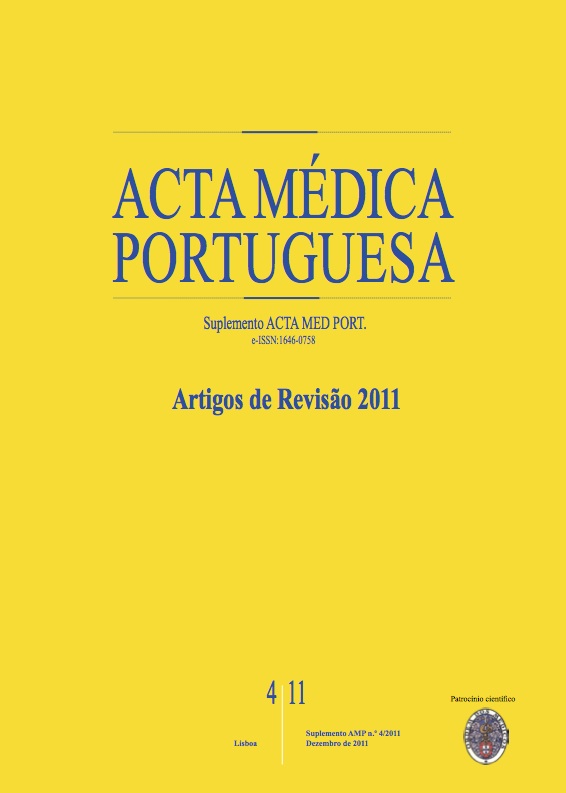Food for health: primary-care prevention and public health--relevance of the medical role.
DOI:
https://doi.org/10.20344/amp.1593Abstract
Each individual is unique, with genetic factors that interact with a particular environment. Therefore, the daily energy requirements should be calculated individually and have to consider the several factors which influence them: basal metabolic rate, diet-induced thermogenesis, physical activity, specific diseases, among other factors. Food provides macronutrients: carbohydrates, proteins and lipids, as well as micronutrients: vitamins, minerals and oligoelements, which should be eaten daily in the recommended amounts during the life cycle, e.g. pregnancy, childhood, adolescence, adulthood and aging. Health professionals can use the "Roda dos Alimentos Portuguesa" to teach and guide the population on how to eat, whether they are healthy or ill individuals, in order to meet their nutritional needs. Through this tool it is possible for everyone to understand and to practice a diet that is: 1) complete (eating foods from all groups), 2) balanced (to respect the proportions of each food group, adjusting the recommended portions/amounts for each individual), and 3) diversified (to choose different foods within each group). Some studies show that food marketing and advertising influence the consumers' choices since childhood. There is already some Regulation in this field, especially about nutrition and health claims. However, a permanent supervision of food marketing is necessary, to ensure compliance with the European Regulation from EFSA. It is crucial to teach and to encourage people to carefully read the food labels before purchasing. Health professionals should also be aware, academically and professionally, about the basics principles of Food and Health Promotion. The unique and essential role of the Professionals of Nutrition needs to be valued and recognized, and these professionals have to be integrated in sufficient number, in the multidisciplinary teams of the National Health Service, whether in Hospitals or Health Care Centers for the ambulatory population. These are the interventions and attitudes that make a difference and that are actually effective in preventing and/or treating many chronic diseases. Hence it is possible to improve health and quality of health services provided to the population (public health scope) and that of patients (clinical practice scope) as well as to optimize costs in health.Downloads
Downloads
How to Cite
Issue
Section
License
All the articles published in the AMP are open access and comply with the requirements of funding agencies or academic institutions. The AMP is governed by the terms of the Creative Commons ‘Attribution – Non-Commercial Use - (CC-BY-NC)’ license, regarding the use by third parties.
It is the author’s responsibility to obtain approval for the reproduction of figures, tables, etc. from other publications.
Upon acceptance of an article for publication, the authors will be asked to complete the ICMJE “Copyright Liability and Copyright Sharing Statement “(http://www.actamedicaportuguesa.com/info/AMP-NormasPublicacao.pdf) and the “Declaration of Potential Conflicts of Interest” (http:// www.icmje.org/conflicts-of-interest). An e-mail will be sent to the corresponding author to acknowledge receipt of the manuscript.
After publication, the authors are authorised to make their articles available in repositories of their institutions of origin, as long as they always mention where they were published and according to the Creative Commons license.









